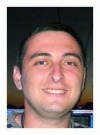 Irakli Sirbiladze, leadership in quality innovation
Irakli Sirbiladze, leadership in quality innovation
“He who opens a school door, closes a prison.”
—Victor Hugo
Along with his Georgian countrymen, Irakli Sirbiladze must remain alert to the possibility of outbreaks of violence and the subsequent Russian incursion under various guises. In the case of Georgian conflict in the Nineties and again in 2008, Irakli says that “to some extent incautious polices of the Georgian government and imperial ambitions of the Russian Federation” divided communities, families, and friends, leading to violent conflict that blocked democratic processes and economic development. Every human being in Georgia felt vulnerable.
Inspired by Victor Hugo and by Nelson Mandela’s idea that “Education is the most powerful weapon which you can use to change the world,” Irakli believes that better educations would contribute to a free, prosperous, and peaceful Georgia. This idea begs the question how local education could stop an outside aggressor? In Georgia’s case, Irakli would argue that part of the answer lies in maintaining stability at the community level as well as nationally to avoid giving an outside country an opportunity to exploit it or a pretext to invade.
Irakli says that some Georgians “addressed their violence” to religious minorities and gender issues, creating conflict. Cultural tolerance increases with education. “Thus, education becomes the key to establishing peace and promoting peaceful coexistence.” He points out that small countries lack the economic and military resources to deal with massive problems; however, opening up educational opportunities will give rise to smart, creative, sustainable policies that may prevent future disasters.
Eager for practical experience in implementing theoretical knowledge gained during university classes, Irakli and his friends organized a number of activities starting in 2012. They held simulations, workshops, and informal training sessions designed to improve skills in public speaking, debates, and team-working. Hugely successful, the gatherings became the Young Diplomats’ Club of Georgia (YDCG), and Irakli served as vice-president. Advanced simulations allowed participants to experience various conflict resolution frameworks from the UN, NATO, and the EU, such as: the Geneva International Discussions, exploring the Georgian-Abkhazian/South Ossetian conflict; the Minsk Group under OSCE, exploring the Nagorno- Karabakh conflict between Armenia and Azerbaijan; UN Security Council for Israeli-Palestinian conflicts, and others. A student diplomat was assigned a role representing a specific country by defending its interests to optimal benefit. They prepared and delivered speeches, debated, and came up with a final resolution.
The YDCG held public meetings with diplomats and public officials that drew hundreds of students from different universities in Georgia. The group offered monthly movie screenings of films related to international relations, (IR) followed by a professional moderator-led discussion. Irakli organized conferences attended by hundreds of students majoring in international relations, political science, sociology, and other fields. Participants submitted their abstracts on topics related to NATO, the European Union, and international security, which were assessed by a jury of experienced IR scholars.
“It is really a pleasure for me to communicate with all the people interested in diplomacy and politics and to contribute to the professional development of Georgian youth,” Irakli says.
During his bachelor studies, Irakli also gained significant experience working in the public sector, interning in three state institutions: the Ministry of Economy and Sustainable Development, the Ministry of Education and Science of Georgia, and the Parliament of Georgia. He has also worked for the Caucasus Research Resources Center, a think tank, as well as for the Georgian office of National Democratic Institute (NDI).
“Promoting peace, diplomacy, tolerance, and education is an important guideline of my life,” Irakli says. He is likely to assume a leadership role in this process, and as he sees it, “we need leadership to generate change and introduce innovation. Leadership has to produce quality results for every person concerned.”
For the next academic year, Irakli will pursue a master’s degree at Queen Mary University of London in the UK to help him contribute to the development of free, prosperous, and peaceful Georgia.
